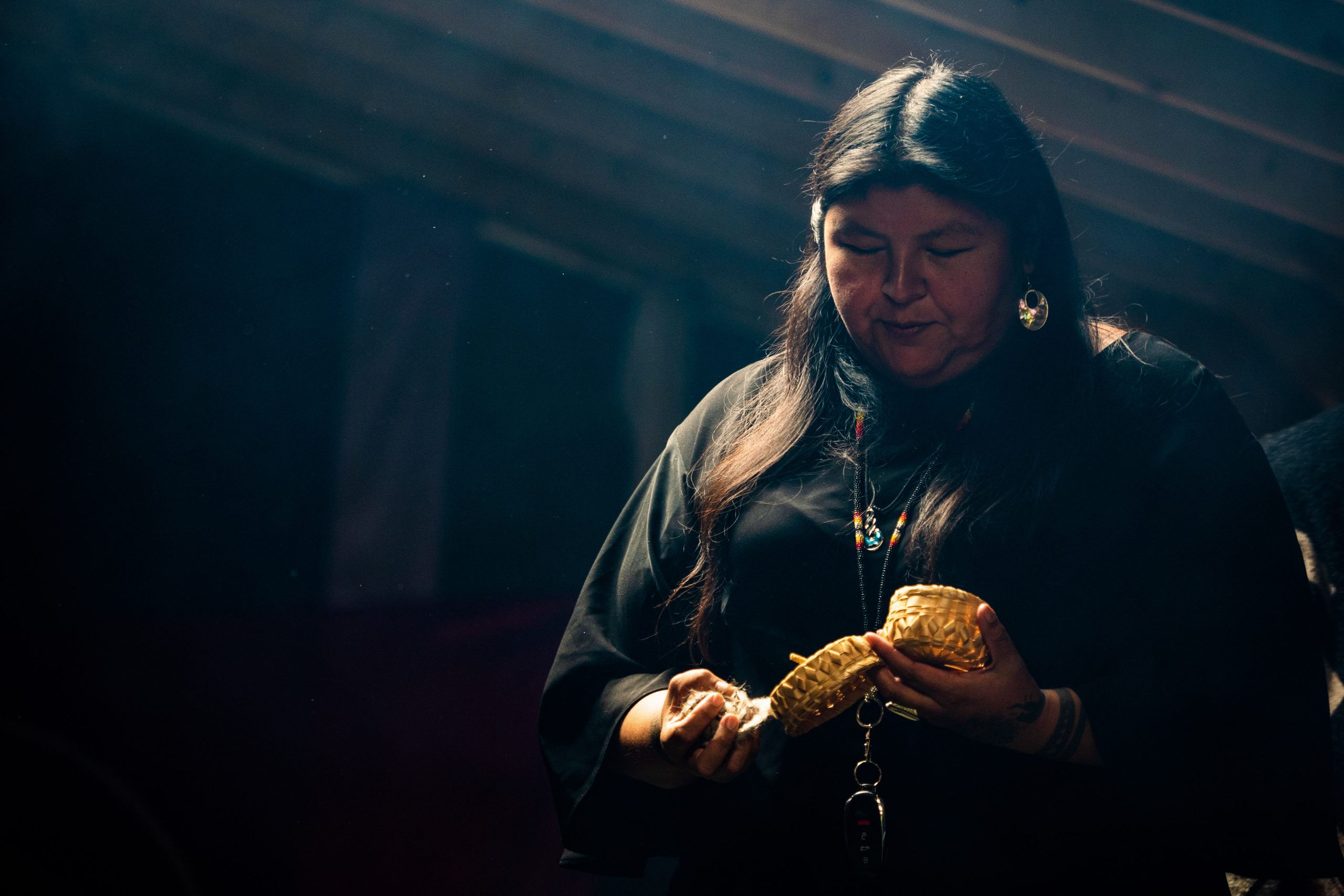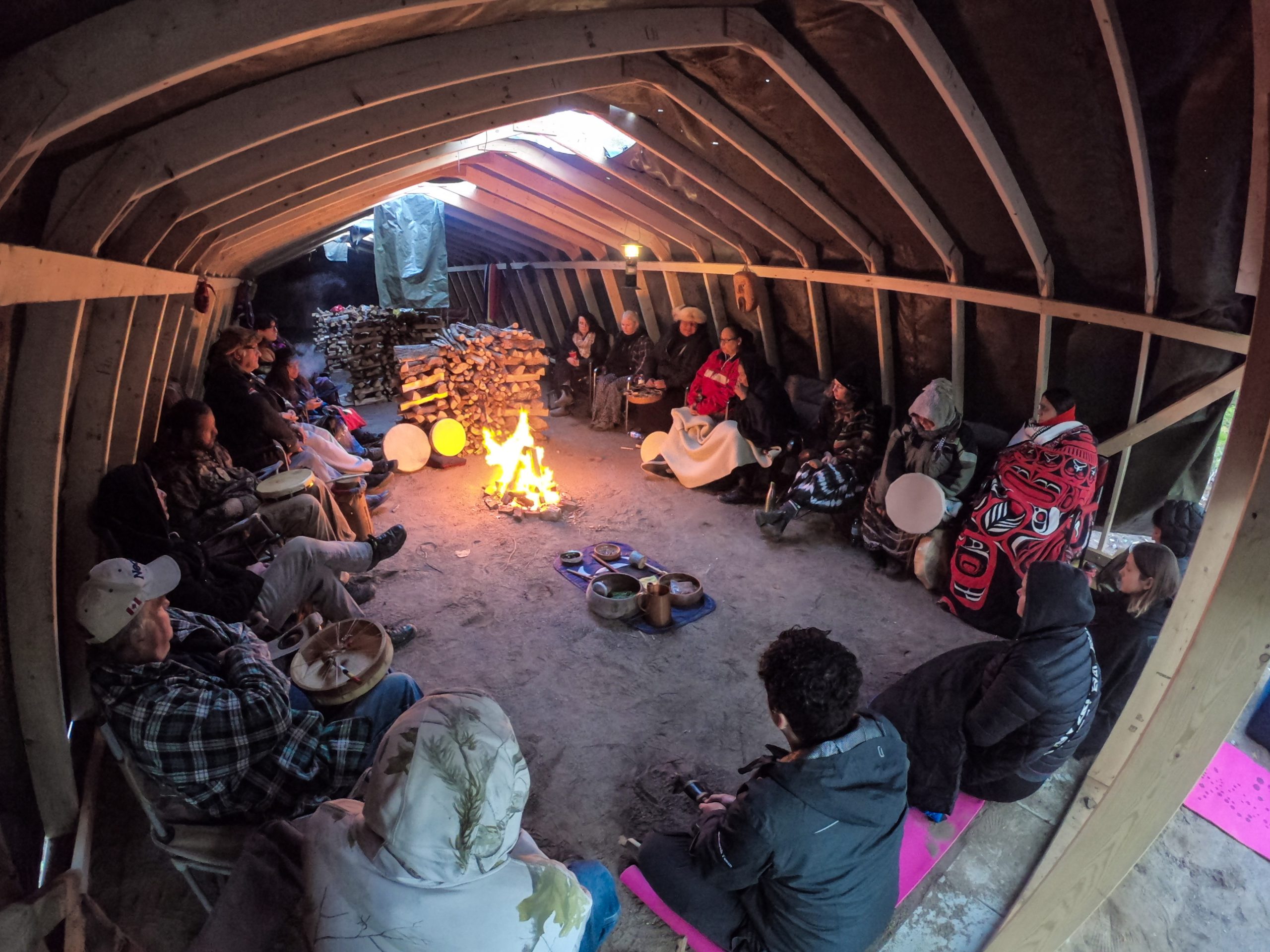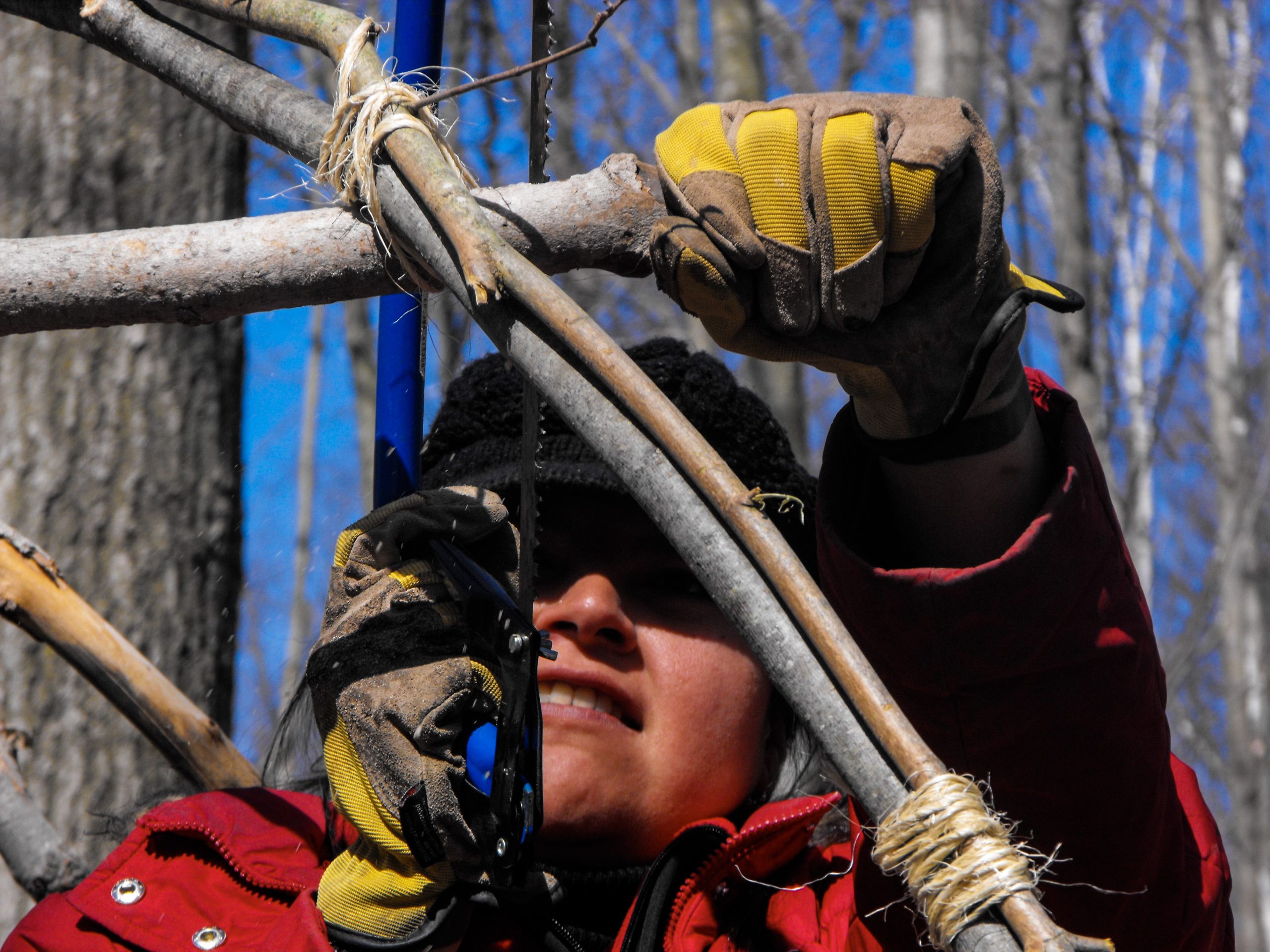Indianz.Com > News > The Conversation: Native ceremony in the age of COVID-19

Who decides what’s essential? The importance of Indigenous ceremony during COVID-19
Monday, October 25, 2021
The Conversation
During the COVID-19 pandemic and nationwide lockdown in September 2020, Ojibway Elder Wendy Phillips and her partner, Mark Phillips conducted an in-person 12-day celebration of life ceremony at their home near Havelock, Ontario, despite public health recommendations dictating otherwise.
Indigenous ceremonies have been central to Indigenous health and well-being since time immemorial. Despite the genocidal policies and practices exercised by Canada, these ceremonies continue to be an important part of life and sustaining good health for many.
In March 2020, federal and provincial governments announced lockdowns — provinces began prohibiting communal services and social gatherings and in-person contact was discouraged. In September 2020, the Ontario government announced further restrictions to social gatherings as well as ceremonial and religious gatherings. And those found in violation could face up to $10,000 in fines.
While COVID-19 exacerbated many of the health disparities Indigenous people face, everyday actions of land-based regenerative resurgence, including some ceremonies, continued.
Teachings that Elder Phillips and her partner received from their elders about the 12-day celebration of life ceremony, was that it had to be performed, every four years, no matter what. No matter the weather, no matter the situation — with ideally 64 people — regardless of western conventions of public health and politics.
Was this determination to continue with the ceremony an act of Indigenous resistance and resurgence and did it reflect reassertion of nationhood and self-determination seen elsewhere throughout the pandemic?
This was a question our research team wanted to explore.
Centring the voice of ceremonialists
Led by Elder Phillips, Ojibway, Bald Eagle Clan from Wasauksing First Nation, we are a culturally diverse group of Anishinaabe and Haudenosaunee elders and knowledge keepers, Indigenous and non-Indigenous researchers who were concerned about the potential impacts disrupting ceremony would have on Indigenous Peoples’ health and well-being. We asked those who participated in the ceremony: what is the right thing to do?
Our aim was to listen to ceremonialists who chose to continue despite the provincial government’s rules and public health directives, including directives from Indigenous health authorities (like the COVID-19 Advisory on Sweat Lodges and Potlatches) in recognition that Indigenous autonomy over ceremony has been historically criminalized and is all too often silenced.
The ceremonialists we spoke with talked about how crucial ceremony is as a way of life and well-being, and for some even lifesaving: “Ceremony actually saved my life. It saved my son’s life. It’s saving our people,” said one of the participants.
Although extra precautions and COVID-19 considerations were made — including both Indigenous medicines and consideration for public health recommendations — it was clear that despite the pandemic, taking part in ceremony was essential.

Ceremony helps people stay connected
We asked participants to explain why ceremony was important. They talked about identifying ceremony as a way to connect with self and identity, as well as family and community. Being involved in ceremony gave them a sense of connection and belonging within the colonial Canadian context of forced disconnection from culture and community via state annihilation attempts (like residential schools, the ‘60s scoop and the child welfare system).
Ceremony was identified as safe space to heal from intergenerational trauma. One of the participants said:
“What really brings me here is working on myself, being the best person I can be, being the best Anishinaabe, best nijiwakin (father) and best shomis (grandfather) that I can be … this is something my parents couldn’t give me because of residential school and intergenerational trauma and being taught not to practice ceremonies.”In addition to the individual and community healing part of ceremony, many also voiced a sense of responsibility for the continuation of ceremony and traditional knowledge. This sense of responsibility was expressed in terms of honouring their ancestors’ historical struggle to protect this knowledge and way of life, as well as ensuring it continues for future generations. “These are important ceremonies for us, and this is important for our well-being and the well-being of future generations,” said one of the participants. “This is why we try to continue to ensure that this knowledge and traditions can continue.”

Provincial restriction caused frustration and anxiety
When it came to provincial restrictions, which were intensified during the celebration of life ceremony, participants voiced both frustration at the interference in their way of life, and some anxiety about the potential for police intervention and/or fines. They all however remained unwavering in their commitment to continue participating.
Most often, frustrations were expressed in terms of the historical and ongoing colonial relationship with the government, and ongoing battle to protect Indigenous ways of being. “This isn’t the first time that going to ceremony gets you fined. It’s happened before but I’m following through with what I believe and the faith I have,” said one of the participants.
The federal government banned Indigenous Peoples from conducting their own spiritual ceremonies from 1884 to 1951; fines and prison sentences were the consequences if caught. This aspect of the Indian Act was known as the Potlatch Ban because that ceremony, in particular, was deemed “anti-Christian, reckless and wasteful.” Despite such racist and repressive policies, the Potlatch and other ceremonies were never entirely suppressed and have been practised openly since the ban.
One participant said:
“The fine that they are implementing, it might as well be a million dollars. I can’t afford it, but I’m not leaving either. I’m staying. These ceremonies are important. Ceremony has given me quality of life.”
Jodi John, Ph.D. Candidate, Geography and Planning, Queen’s University, Ontario; Angela Mashford-Pringle, Assistant Professor/Associate Director, Waakebiness-Bryce Institute for Indigenous Health, University of Toronto; Heather Castleden, Professor and Impact Chair in Transformative Governance for Planetary Health, School of Public Administration, University of Victoria; Janice Hill, Associate Vice-Principal (Indigenous Initiatives and Reconciliation), Queen’s University, Ontario; Marc Calabretta, Research Program Manager, Health, Environment, and Communities Research Lab, Queen’s University, Ontario; Mark Dockstator, Associate Professor, Chanie Wenjack School for Indigenous Studies, Trent University, and Wendy Phillips, Elder in Residence, Queen’s University, Ontario
This article is republished from The Conversation under a Creative Commons license. Read the original article.
Search
Filed Under
Tags
More Headlines
Urban Indian health leaders attend President Trump’s first address to Congress
‘Mr. Secretary, Why are you silent?’: Interior Department cuts impact Indian Country
Cronkite News: Two Spirit Powwow brings community together for celebration
Native America Calling: Native shows and Native content to watch
VIDEO: Oversight Hearing to Examine Native Communities’ Priorities for the 119th Congress
AUDIO: Oversight Hearing to Examine Native Communities’ Priorities for the 119th Congress
AUDIO: Leaving Indian Children Behind: Reviewing the State of BIE Schools
Cronkite News: Native student program shuts down due to President Trump
NAFOA: 5 Things You Need to Know this Week (March 3, 2025)
Filmmaker Julian Brave NoiseCat makes history at Academy Award ceremony
Senate Committee on Indian Affairs schedules business meeting to consider bills
Chuck Hoskin: Cherokee Nation advocates for Indian Country
Native America Calling: Native education advocates assess the new political landscape
AUDIO: American Indian and Alaska Native Public Witness Hearing Day 3
Native America Calling: The Trump administration, endangered fish and a new book
More Headlines
‘Mr. Secretary, Why are you silent?’: Interior Department cuts impact Indian Country
Cronkite News: Two Spirit Powwow brings community together for celebration
Native America Calling: Native shows and Native content to watch
VIDEO: Oversight Hearing to Examine Native Communities’ Priorities for the 119th Congress
AUDIO: Oversight Hearing to Examine Native Communities’ Priorities for the 119th Congress
AUDIO: Leaving Indian Children Behind: Reviewing the State of BIE Schools
Cronkite News: Native student program shuts down due to President Trump
NAFOA: 5 Things You Need to Know this Week (March 3, 2025)
Filmmaker Julian Brave NoiseCat makes history at Academy Award ceremony
Senate Committee on Indian Affairs schedules business meeting to consider bills
Chuck Hoskin: Cherokee Nation advocates for Indian Country
Native America Calling: Native education advocates assess the new political landscape
AUDIO: American Indian and Alaska Native Public Witness Hearing Day 3
Native America Calling: The Trump administration, endangered fish and a new book
More Headlines